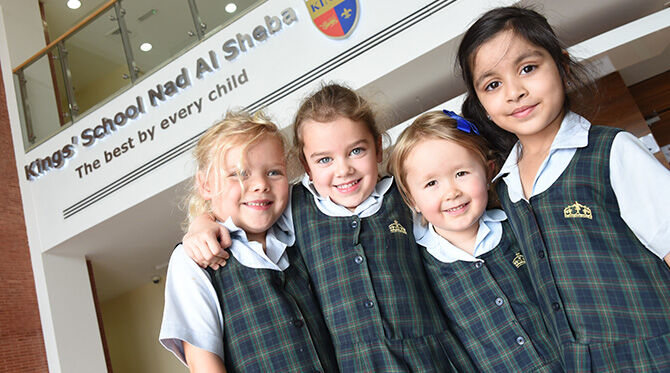The importance of a creative, concept based curriculum
A concept-based curriculum not only improves results but also promotes the learning capacities to enable students to succeed in the future. Bill and Alison Turner of Kings’ Schools explain.


Making school studies meaningful
A concept-based curriculum challenges learners to think more widely and deeply than a traditional, topic-based, two-dimensional one. The latter is one that focuses only on knowledge and skills, whereas the former goes much further and deeper, developing conceptual understanding.For example, a unit on Shakespeare’s Macbeth might be approached through the concept of ‘responsibility’. The thought-provoking conceptual question ‘am I, and only I, the one responsible for my own actions?’ allows all children access to the topic, and to find a personal relevance. Being conceptual, it facilitates thinking across times, geographies and cultures, not limiting learning to a single literary or historical event.A curriculum that enables relevant learning
Macbeth was smart, but perhaps not in the right way! We often hear that EQ (emotional intelligence) is more important that IQ in determining success in life. Certainly, our children’s parents have had to be more than simply ‘exam smart’ to attain employment in Dubai.In order to be relevant, a curriculum must look at all aspects of a young person’s development as a learner. Science specialists still need to develop their creativity; linguists still need to be fit; artists still need to be responsibly active citizens.Outstanding curricula around the world have a range of ‘learner profiles’, or ‘learner competences’, which thread themselves even beyond the curriculum through all aspects of the school’s provision. One example is the RSA (Royal Society for the Arts) Opening Minds Curriculum. This includes ‘learning muscles’ such as leadership, teamwork, reflection and, of course, creativity.Successful and happy school-leavers have both a bag of great academic results and a bag of learning capacities that enable them to use these grades to good effect. These are ingredients for success.Engaging and exciting children in their education
The first dish in a meal must excite the taste buds! It sets the standard. At the opening of a lesson, a creative learning hook will capture the learner’s attention and drive the learning of the lesson. For example, children walk into their room to find part of it cut off with hazard tape and an array of discarded and broken objects lying around. They are given plastic gloves and a detective’s notebook.It’s a crime scene, and might be a Year 2 lesson on story narratives or a Year 9 chemistry lesson on forensic science. Either way, young people are excited and driven to want to learn.Benefits of a concept-based curriculum
We believe that a creative, concept-based curriculum engages the intellect and emotions of a student to a higher degree than a more traditional, topic-based curriculum. This helps students to transfer their understandings across learning areas. They are better equipped to make connections to their own experiences and the wider world, both now and when looking to the future.Their intellect is developed to handle a world of increasing complexity and accelerating change, producing an intellectual depth in thinking and understanding. Students’ motivation for learning is increased, as they are encouraged to analyse facts and consider implications in a personally engaging way.You have to look much wider than traditional parents’ evenings and exercise books to understand the impact of creative and concept-based curricula. Evidence of learning is also seen on sports fields, on walls and canvases, in personal reflections, and in social interactions.But it’s not just the teachers excited by its impact; this is equally well communicated by the children themselves, in student-led conferences. The child presents his learning to his parents: children leading purposeful communication to a real audience.In these ways, our Kings’ Schools curricula select from a range of choices to create our perfect menu to satisfy the appetite of our students.
Now available as an ebook on Amazon! Simply download from Amazon onto your Kindle, mobile phone or tablet to read wherever you are!
For related news and features, visit our Education & Schools section.Access hundreds of global services and suppliers in our Online Directory
 Get access to our free Global Mobility Toolkit
Get access to our free Global Mobility Toolkit  © 2017. This article first appeared in the 2017 edition of the Guide to International Education & Schools, published by Profile Locations, Spray Hill, Hastings Road, Lamberhurst, Kent TN3 8JB. All rights reserved. This publication (or any part thereof) may not be reproduced in any form without the prior written permission of Profile Locations. Profile Locations accepts no liability for the accuracy of the contents or any opinions expressed herein.
© 2017. This article first appeared in the 2017 edition of the Guide to International Education & Schools, published by Profile Locations, Spray Hill, Hastings Road, Lamberhurst, Kent TN3 8JB. All rights reserved. This publication (or any part thereof) may not be reproduced in any form without the prior written permission of Profile Locations. Profile Locations accepts no liability for the accuracy of the contents or any opinions expressed herein.
































